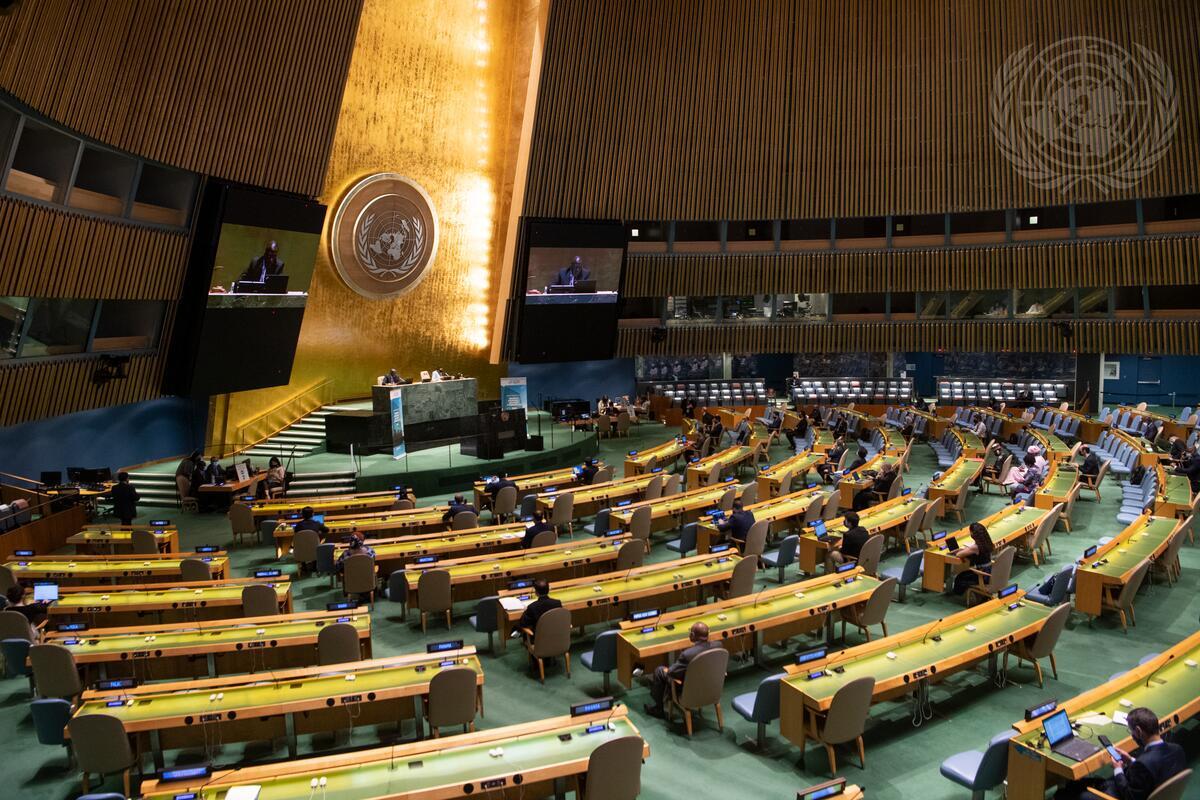CITES Secretariat welcomes the Political Declaration adopted at the United Nations General Assembly Special Session Against Corruption

From 2 to 4 June 2021, the United Nations General Assembly held a Special Session Against Corruption (UNGASS 2021), the first in its history to tackle this issue. The session provided an opportunity to galvanize the political will of governments and the international community in enhancing and progressing the fight against corruption.
The Assembly unanimously adopted a Political Declaration entitled "Our common commitment to effectively addressing challenges and implementing measures to prevent and combat corruption and strengthen international cooperation".
With this Declaration, UN Member States recognized the seriousness of the problems and threats posed by corruption to the stability and security of societies, undermining their institutions and jeopardizing sustainable development and the rule of law. They pointed to the importance of international cooperation in preventing and addressing corruption, which is both a national and a transnational phenomenon that affects all societies.
The Declaration also highlights the importance of the United Nations Convention Against Corruption (UNCAC) as the most comprehensive legally binding universal instrument to respond to and address corruption.
The Political Declaration is directly relevant to the provisions of CITES Resolution 17.6 on Prohibiting, preventing, detecting and countering corruption, which facilitates activities conducted in violation of the Convention. This Resolution stresses that failure to prohibit, prevent, and counter corruption which relates to the implementation or enforcement of CITES greatly undermines the effectiveness of the Convention.
Several CITES-listed species are highly valuable and are thus targeted by organized crime groups, making the officers responsible for regulating trade in specimens of these species potentially vulnerable to corruption.
Effective application of CITES depends largely on control over the issuance, inspection and acceptance of CITES permits and certificates. Although most officials responsible for CITES implementation and enforcement are committed to their task of ensuring that international trade is legal, sustainable and traceable, reports of corrupt activities that undermine the effective implementation of the Convention remain of concern.
CITES Secretary-General Ivonne Higuero welcomed the Political Declaration, saying: "Corruption is particularly linked to organized crime and economic crime, both of which occur in the context of wildlife crime. Addressing corruption is an essential component for the achievement of the 2030 Agenda for Sustainable Development. It is important for Parties to actively pursue the implementation of CITES Resolution 17.6, to ensure that adequate measures are in place to prevent, identify and address corruption in the context of CITES trade. The CITES Secretariat participated in the preparatory process for UNGASS 2021 and is pleased that it was able to make a contribution to this important work".
Under the auspices of the International Consortium on Combating Wildlife Crime (ICCWC), the CITES Secretariat, INTERPOL, the United Nations Office on Drugs and Crime, the World Bank and the World Customs Organization, have been working closely together to support CITES Parties and Member States in the fight against wildlife crime. The Consortium aims to provide States and their relevant agencies with the tools, services, technical support and capacity-building they need to establish long term sustainable capacity to respond to wildlife crime. Addressing corruption is an integral part of this work.
A number of resources to support Parties in responding to and mitigating the risks of corruption have also been developed, such as the guide Scaling Back Corruption - A Guide on Addressing Corruption for Wildlife Management Authorities.
Subsequently, at the 18th meeting of the Conference of the Parties to CITES (CoP18, Geneva, 2019), CITES signatory States adopted Decision 18.77, encouraging all Parties to actively pursue and promote the use of the Guide to strengthen responses to and overcome the risks and challenges posed by corruption associated with wildlife crime.
Parties also adopted Decision 18.78, requesting the CITES Secretariat, UNODC and other partner organizations of ICCWC to promote the use of the Guide and to support Parties, upon request, in implementing activities and measures to address the risks and challenges posed by corruption. This work is ongoing.